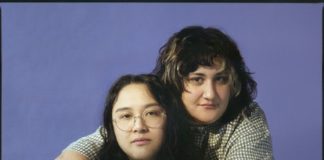
Tammy Faye Messner (formerly Bakker) was camp incarnate. With her wildly over-the-top makeup and garish animal-print ensembles, a penchant for singing Christian disco anthems despite her lack of voice training, and a sense of childlike wonder with which she preached her gospel, she made for compelling TV viewing.
Messner, who appeared on TV for nearly all of her adult life, could come off as artificial onscreen. But it was groundbreaking in 1985, when she interviewed a gay man living with AIDS and showed him compassion (amid some very personal questions about her interviewee’s sex life). It was a departure from the norm to hear a person in her position — half of an evangelical Christian couple — support gay people, especially as evangelism became increasingly conservative. Messner spoke out about that, too.
“I think I have a lot in common with the gay population because they’ve been made fun of and put down and misunderstood and have really had a rough row to hoe in life,” she told the South Florida Sun-Sentinel in 2002, ahead of a live show she performed for primarily gay audiences. “They identify with me and I certainly identify with what they’re still going through.”
Messner, who died from cancer in 2007, takes the stage again, this time portrayed by Jessica Chastain in the film “The Eyes of Tammy Faye,” which shares a name with a 2000 documentary on the icon. In both films, Messner’s support for gay people and people diagnosed with AIDS is amplified — and by doing so, both films attempt to redeem her memory.
She interviewed a gay AIDS patient
The HIV/AIDS epidemic had barely been discussed by the US government, let alone a televangelist couple like the Bakkers, in the 1980s when it reached its peak. But in 1985, Messner invited AIDS patient and minister Steve Pieters onto her show to discuss his diagnosis, his faith and his sexuality.
When speaking to Pieters, who was recovering from chemotherapy, Messner started to tear up over his parents’ reaction when he came out as gay.
“No matter what happens to a young person in their life, they’re still your boy, they’re still your girl,” she said. “And I think it’s so important that we as mom and dad love through anything.”
After telling Pieters she wanted to “put [her] arms around him,” she went on to ask him about his sexual relationships with women and whether he thought he just hadn’t given women a “fair try.”
Pieters told CNN affiliate KABC he thought Messner was “pretty savvy” in asking what she did, even though some of those questions could be considered offensive today, since her audience likely didn’t know many gay men or people with AIDS.
“I’ve had so many people tell me over the years those were such stupid questions or such silly questions, but for her audience they were the right questions,” Pieters told KABC earlier this month.
She teared up again during the interview after Pieters discussed losing his friends, asking her live audience and the viewers, “How sad that we as Christians, who are to be the salt of the earth, we who are supposed to be able to love everyone, are afraid so badly of an AIDS patient that we will not go up and put our arm around them and tell them that we care?”
In a 2002 interview with the LGBTQ outlet Metro Weekly, Messner said she was aware of the impact that episode would have with gay viewers.
“I was probably one of the first ever to have a gay man on my show,” she said of the episode with Pieters. “And so I think they remember that. They knew that we accepted them.”
She showed up for gay supporters
Following Jim Bakker’s fraud conviction and the couple’s divorce, Messner grew more vocal about supporting gay people as a Christian, even when the evangelical Christian community disapproved. (It was also around this time she married Roe Messner, who also went to prison for fraud related to the Bakkers’ theme park, and changed her last name.)
Throughout the 1990s and 2000s, she was a regular attendee at Washington’s Capital Pride Festival, even co-judging a Tammy Faye lookalike contest with raucous drag queen Lady Bunny. She assisted gay advocacy groups at charity events and befriended notable gay figures like RuPaul and the filmmakers Fenton Bailey and Randy Barbato, and the pair eventually directed the 2000 documentary about Messner’s life.
That documentary was largely sympathetic toward Messner and highlighted her popularity among gay fans — and it helped reshape the image of Messner from a disgraced televangelist to a pillar of accepting Christianity.
In an appearance on “The RuPaul Show,” Messner shared an easy rapport with the famed drag queen. When asked by RuPaul what she made of comments that Messner is a drag queen herself, the former televangelist smiled, made a face, then got serious.
“I say everybody must be who they are,” she said, speaking to the camera like she did for so many years on the PTL Network. “Young people, don’t ever let anyone make you something that you’re not.”
She called out anti-gay Christians
In a scene in the new film “The Eyes of Tammy Faye,” Messner (Chastain) states her support for gay people early on, years before she invited Pieters onto her program.
“I don’t think of them as homosexuals, I just think of them as other human beings that I love,” she tells a stunned Jerry Falwell, played by Vincent D’Onofrio. “You know, we’re all just people, made out of the same old dirt. And God didn’t make any junk!”
Messner defended her support of gay people as a devout Christian later in real life, too. She said she saw it as her mission from her God to extend her love to all of humanity.
In her interview with the South Florida Sun-Sentinel, Messner said Christians had “gotten far away” from the church’s teachings of acceptance and love for all people.
“[Christians] have become condemning,” she said after reasserting her love for her gay fans. “It’s just sad to me what has happened to Christians today.”
Her support for gay people stood in sharp contrast from evangelical leaders like Falwell, who took over the Bakkers’ Praise the Lord Network. In a 2000 interview, and repeatedly in his broadcasts, he called homosexuality “so wrong.”
The limits to Tammy Faye’s support of gay rights
Messner’s support had its limits. In 2002, NPR reported that Messner refused to speak about political issues like same-sex marriage and said she wouldn’t participate in Pride parades, though she often appeared at Pride events, where she’d ask attendees to forgive those who discriminated against them.
Randy Shulman, then a publisher of Metro Weekly, told NPR at the time that Messner’s message was muddled, and that he suspected she didn’t fully approve of her gay fans’ sexuality.
“It comes back to this forgiveness thing,” Shulman told NPR. “If you read between the lines, she’s not saying to me, ‘It’s OK that you’re gay; she’s saying, ‘I forgive you for being gay and when you go off and die, it’s going to be between you and your maker.'”
In a 2002 interview that same year with Metro Weekly, Messner was asked what advice she would give to a young gay person whose parents haven’t accepted them.
“Don’t throw your gayness in anyone’s face, just live your life,” she told Metro Weekly. “But I also think honesty is always the best policy.”
It was clear, though, that Messner understood her second wind of success was largely owed to her gay fans. In her last interview, a conversation with Larry King the day before she died, Messner said that when she and Jim Bakker lost everything after he misused funds from the PTL Club’s ministry, “it was the gay people that came to [her] rescue.” She’d always love them for that, she told King.
Messner’s recognition of the LGBTQ community was still significant during her lifetime. Though he was skeptical about her motivations, Schulman told NPR “we could all stand to learn from” her, adding, “If you can find it in your heart to love everybody, no matter what their flaws, then how is that a bad thing?”
The-CNN-Wire
™ & © 2021 Cable News Network, Inc., a WarnerMedia Company. All rights reserved.







